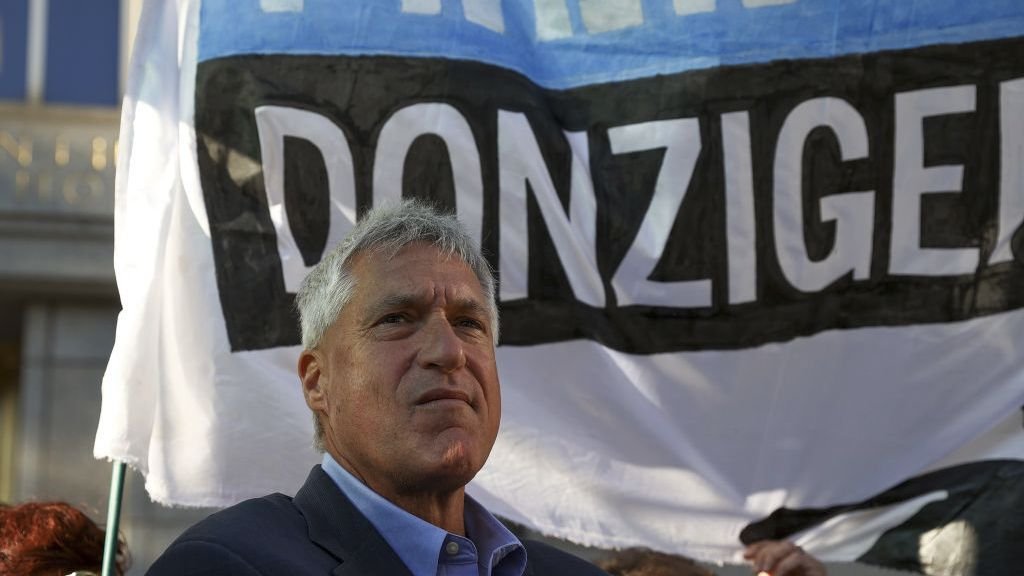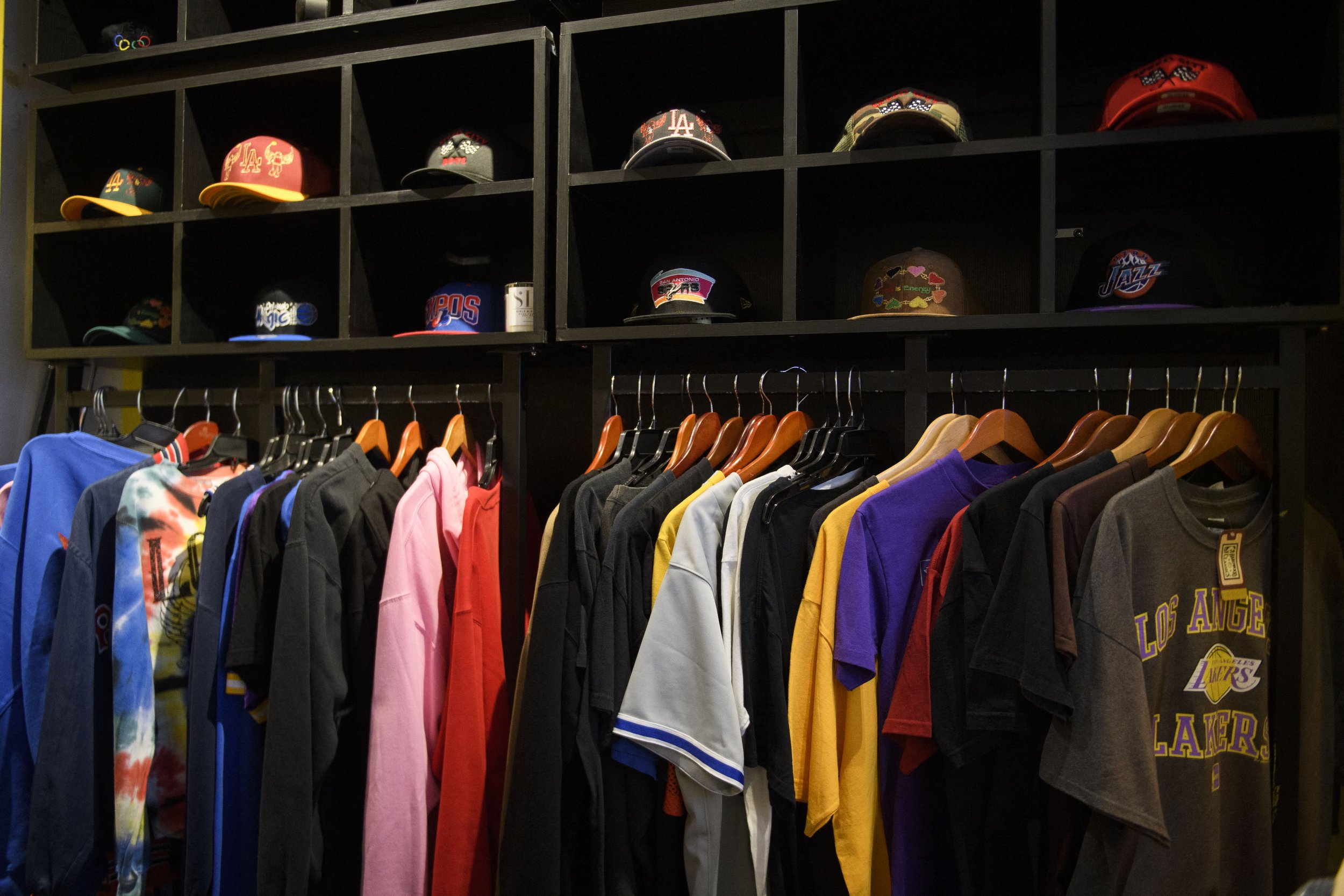Chevron Put an Environmental Lawyer in Jail
Steven Donziger at the "Free Donziger” rally in front of the Manhattan Court House in New York City on October 1, 2021. [Tayfun Coskun/Anadolu Agency via Getty Images]
Two weeks ago, environmental lawyer Steven Donziger reported to jail in Danbury, Connecticut, to begin serving a six-month sentence. This was the culmination of a billion-dollar targeted campaign carried out by one of the richest corporations in the world. The aim? To keep environmental crusaders from being able to hold fossil fuel companies accountable for destroying the planet.
How exactly Donziger ended up in jail is complicated, but what turned into a decadeslong battle against the California-based oil giant Chevron began in the mid-1990s, when Donziger sued Texaco (which was subsequently bought by Chevron) for its role in polluting the Lago Agrio region of Ecuador.
Donziger goes to war with Chevron
The abbreviated timeline goes something like this: In 2011, a court in Ecuador issued a landmark ruling in favor of 30,000 indigenous defendants represented by Donziger, granting them $18 billion in damages. Chevron appealed, and after several more years in court, the ruling was affirmed, but the payout was modified to $9.5 billion.
By this point, Chevron had already whisked its assets out of Ecuador, effectively preventing the government from seizing them.
That same year, responding to an attempt to make Chevron pay in the U.S, the company took Donziger to court in New York for fraud, racketeering and extortion – known as RICO charges – and accused him of bribing witnesses and falsifying key documents in the Ecuador trial. The oil giant assembled an army of over 60 law firms to work on the case, which was tried by Judge Lewis Kaplan, who had spent years in private practice representing Big Tobacco companies. Chevron’s case relied heavily on the testimony of a single Ecuadorian witness, who happened to receive hundreds of thousands of dollars from the company. In March of 2014, Kaplan, who “exhibited a palpable dislike of Donziger,” according to The New Yorker, ruled against him. Three years and several appeals later, that ruling became final.
Eventually, the court ordered Donziger to pay Chevron $813,602.71 to compensate for their legal fees. And that was just the beginning.
To make sense of the many twists and turns in this case, I spoke to Rhiya Trivedi, one of the two lawyers defending Donziger against the company, which has a market cap of over $200 billion and is one of the worst offenders in contributing to global carbon emissions.
Extracting the cash
The first problem, Trivedi told me, was that even though Donziger’s win in Ecuador was a major success, it created a new problem: getting Chevron to hand over the money.
“These judgments are not self-executing,” she said. “You have to go and collect.” So, since 2011, lawyers representing the Ecuadorian plaintiffs have been chasing Chevron all over the world, filing suits in Canada, Argentina and Brazil to collect on the ruling. In response, the company has been busy divesting, essentially trying to outrun the courts by moving money out of local bank accounts.
As Trivedi put it, “Lago Agre plaintiffs have been struggling against the fiction of their being owed [over] $9 billion for environmental remediation and nobody being willing to pay it."
Filing so many suits gets expensive, which is how Donziger got into trouble again. Despite having been stripped of his ability to work on the case as a result of the RICO ruling, he continued to do so by finding investors who would hire lawyers to keep working on the lawsuits, in exchange for getting their money back once Chevron finally did pay up. It’s worth noting that Donziger didn’t stand to benefit personally from this – because he had been found guilty in his earlier trial, he was no longer eligible to collect the 1.6 percent fee he would have gotten if Chevron had paid the $9.5 billion.
Still, in 2018, Chevron took him to court for violating the terms of the previous ruling.
Silencing Big Oil’s opponent
Led by a legal team that Trivedi characterized as a “para-state organization,” Chevron set to work convincing Kaplan that they were entitled to Donziger’s records and electronic devices as part of their case. Donziger, who had already turned over more than 200,000 documents, refused, citing privacy and attorney-client privilege. According to Trivedi, Donziger is part of a “multi-dimensional movement” that includes Ecuadorian plaintiffs, environmental activists and journalists determined to “enforce this $9 billion piece of paper.” Had the company gotten their names, she says, it’s likely Chevron would have begun subpoenaing and deposing and harassing them.
So, on July 31, 2019, after filing a series of objections, Kaplan charged Donziger with six counts of criminal contempt. Then, the judge took the surprising step of appointing a private prosecutor – the lawyer Rita Glavin, now representing disgraced New York Governor Andrew Cuomo – to go after Donziger. He also hand-selected the judge to oversee the new case.
Since then, Donziger has been hit with the full force of the law. He’s been disbarred, banned from earning money, had his passport confiscated, had a lien put on his house, kept under house arrest and, ultimately, sentenced to jail – all for refusing to turn over documents. In their final encounter at sentencing, U.S. District Judge Loretta Preska was clear about her feelings on the former environmental lawyer. “It seems only the proverbial two-by-four between the eyes” would get him to respect the law, she said. She didn’t say what it would take to get Chevron to do the same.





